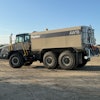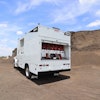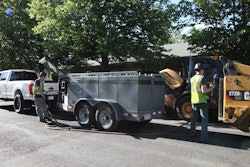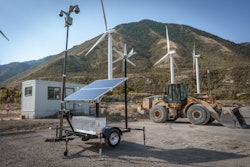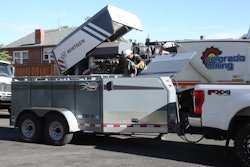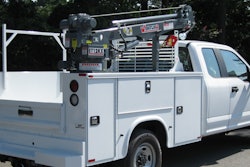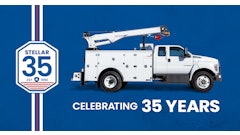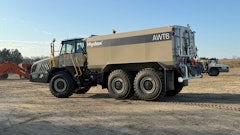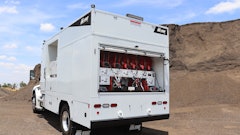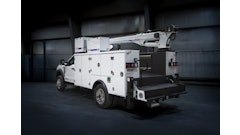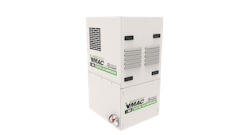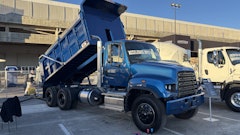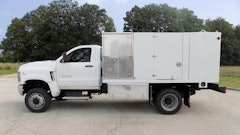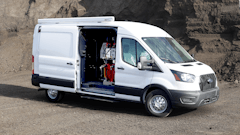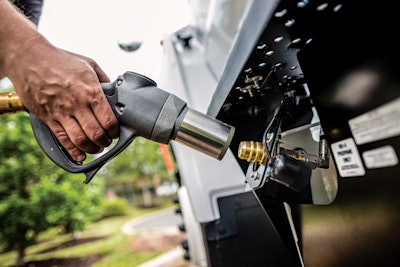
- On construction sites, foremen are tasked with juggling multiple responsibilities at once. Between managing construction requirements, employee and project schedules and adhering to safety schedules, the last thing they need to worry about is whether or not their vehicle fleet is fueled up for their workforce the next day. Construction business owners have a proven and reliable alternative fuel choice that will eliminate those additional concerns and ensure their foremen and workers are productive during the workday.
Over the last four decades, many construction professionals have turned to propane autogas as their fuel of choice thanks to its safe, proven, convenient and reliable refueling options and because it has the lowest total cost-of-ownership of any fuel.
Construction firms can choose from several different refueling options, each of which offer distinct advantages to help a company identify and customize a solution that best fits its business and maximizes productivity. Propane suppliers and infrastructure providers understand that no two construction fleets are alike and will work with fleet owners to design a custom refueling plan.
Here are the five scenarios in which the scalability of propane autogas refueling infrastructure can meet the needs of any fleet.
Larger fleets of 50 vehicles or more
For large fleets that require a centralized refueling location, an advanced private station is the best solution. This station includes a large propane storage tank(s) with sufficient capacity to meet fuel needs with two or more fuel dispensers installed to reduce wait times and speed up refueling. Overhead canopies are an option and may be added for protection from the weather. Like all permanent propane autogas refueling solutions, the station can easily grow with the expansion of a fleet, adding more dispensers and increasing fuel storage capacity as demand increases is convenient and economical.
In most instances, fleets can choose to own or lease the refueling infrastructure. If the leasing option is available, fleets will be responsible for site preparation, electrical supply, and the installation of crash protection. Propane suppliers and infrastructure providers will work with you to determine the best solution for your fleet.
Small fleets of fewer than 50 vehicles
Smaller fleets with a centralized refueling location can choose an affordable standard private station. This refueling station includes a 1,000- to 3,000-gallon propane storage tank(s) plus one or more propane autogas dispensers. Like an advanced private station, fleets may have the option to lease or own the infrastructure. If the leasing option is available, fleets are responsible for site preparation, electrical supply and the installation of crash protection.
Commercial fleets with limited on-site space
A number of fleets are choosing a mobile refueling option which allows them to take advantage of the benefits of propane autogas without installing permanent infrastructure. If this convenient solution is available, your fleet will work with the selected propane supplier to customize a refueling plan for the individual vehicles on-site utilizing a propane bobtail delivery truck. Costs and situations vary with this option, so check with your propane supplier for details and pricing.
Fleets in the process of building permanent refueling infrastructure
Some fleets may be in the process of installing permanent infrastructure and need to deploy vehicles prior to completion of the installation. Propane autogas has a solution for this fleet also. Propane suppliers may be able to provide a temporary refueling solution complete with a fuel storage tank and dispenser mounted on a trailer that can be delivered to designated locations or work sites. This scenario works for both short term or extended use and is also a viable solution for fleets that require refueling while working for long periods on sites located away from the centralized refueling location. A propane bobtail truck will replenish the fuel supply on a specific delivery schedule created by you and the propane supplier. Like mobile refueling, costs and situations will vary.
Fleets that service a wide area
Another option that requires no infrastructure investment is identifying and utilizing existing propane autogas refueling network stations. There are public and private refueling networks in most areas of the country that provide fuel for fleets as needed. Refueling networks provide 24/7 security and convenience and use a card lock system that tracks fuel usage and costs per vehicle, while providing convenience along routes. A complete list of public refueling stations is available from the U.S. Alternative Fuels Data Center on the Propane Council website.
If a network is not available in your area, a propane supplier may establish one if the fuel consumption for fleets in your area justifies the investment required to install the refueling site. Alternately, several fleets can combine to provide the fuel demand required to justify the installation of a larger refueling network.
Affordable and scalable refueling is one of the many reasons propane autogas vehicles provide the lowest total cost-of-ownership of any fuel. With several customizable options, selecting the right propane autogas refueling infrastructure for your fleet will be easy. Your local propane supplier can help you select the right option for you. For more information on propane autogas refueling strategies, visit Propane.com/Fleet-Vehicles.

